Father laughed: "The straw smoke smells so good, my child. It smells like home-cooked rice." Mother was in the kitchen, her voice clear: "If it smells good, eat a lot, or else you'll cry about hunger tomorrow when you go to the fields." The whole family laughed loudly. That laughter sparkled like sunlight, making the poor house feel warm.
Then one day, the laughter fell like a ceramic bowl hitting the tile floor. That afternoon, when Han returned from school with his bag, the door was wide open, his father knelt in the middle of the yard, his hands trembling as he hugged the woman lying still as wood: "My dear! Wake up!" Han rushed forward, the call of "Mom!" shattered in his throat. The shadow of the roof suddenly stretched out, swallowing the cry of the ten-year-old child.
After the funeral, my father became a man of few words. Every afternoon after returning from work, he carried a bundle of rice on his shoulder, bigger than himself, his steps stirring up dust on the road. Han learned how to cook rice, sweep the yard, wash rice, and light the fire. Without his mother's hand in the kitchen, the fire flickered as if it was out of breath. But in the small house on the hillside, he could still hear his father coaxing his son: "Try to study, son. We are poor, but don't be poor in education."

ILLUSTRATION: AI
Time passed, Han grew up, the back of the white shirt was covered with sweat from both father and daughter. On hot noons, Han parked her bicycle under the royal poinciana tree in front of the school gate, opened her bag to get rice her father wrapped in banana leaves. The rice was dipped in fish sauce, with a few strands of pickled cabbage, and tasted as sweet as new rice. There were evenings when the kerosene lamp swayed like a butterfly's wing, her father dozed off, Han diligently solved math problems, the two of them neatly printed on the wall like a pair of sparrows huddled together to protect each other from the wind.
After finishing the twelfth grade exam, Han thought that was it. Where would she get the money to continue studying? Father said, "You can go to work," his voice was light as if he was indifferent. But the words in his heart kept beating. The hamlet government called his name, the neighbors added their encouragement, and the notice of admission to the Pedagogical University was sent home. Father held the paper, his eyes as cloudy as the midday sun suddenly shimmering. He was happy, but worried like clover: "If you like, go, I still have two hands." Han held his father's hand: "You go, then you come back."
In the province, Han studied well and received a scholarship. The country girl had her hair tied high, her shirt washed carefully, her eyes always bright like the water in a moonlit canal. Many boys noticed her day and night. But the person who was always there when Han was tired, when it suddenly rained, when the electricity in the rented room was cut off... was An. An did not say anything big, just stood under the porch and called softly: "Come out and eat. You're hungry." Love blossomed like a pair of young rice plants facing the wind. The two promised to get married after school.
After graduating, Han asked to return to her hometown to teach. The salary for new teachers was not much, but the teachers there did not measure it by money, but by the words that shone in the eyes of their students. Every afternoon, Han rode her bicycle across the red dike, her ao dai fluttering like a stork's wings, her heart light at the thought of dinner with her father waiting.
One evening, father called Han back, his voice hesitant, rarely heard:
- Han… You're grown up now, you have a job, so I don't have to worry too much. This… I don't know what to say.
- There are two of us in the house. If you don't tell me, who will you tell? - Han smiled and put the teapot on the table.
- Dad… has a crush on Linh, Mr. Nam’s daughter in the neighborhood below. Dad has been planning to take her home for a long time, but he was afraid that you were studying… Now that you’re teaching, Dad wants to hear your opinion.
Han was stunned:
- Linh? She's a few years older than you... single and has a child... are you and her... compatible? Or... do you just feel sorry for her?
Father squinted, the light glinting on the crow's feet:
- Don't think so. When you were in school, Linh often visited and brought me porridge when I was sick. In life, whether we are compatible or not, we must be kind. I am old, having someone to keep me company will lessen the emptiness. If you love me, love me completely, okay?
Han was silent, listening to the chirping of insects outside the fence. Her initial displeasure mixed with guilt for all the years of being a single father raising her children. She said softly:
- I don't mind. I just hope you choose someone… gentle and willing to share.
The wedding was simple. Linh returned home, carrying a bunch of bright red bougainvillea flowers like a shy cheek. During meals for three, the sound of spoons clinking softly. Linh often smiled, choosing small things to do, from a bowl of fish sauce to a shirt drying in the sun. Han gradually became less shy. Seeing her father happy, her heart felt as light as a leaf.
Then Han's wedding day came. The bride wore a white dress, her eyes filled with tears as her father put a flower clip he had made himself in her hair. He hugged his daughter, his shoulders shaking a little as if in the wind:
- Now that you’re gone, remember to treat your husband’s family as your own. Don’t let anyone miss laughter. When you’re far away, remember to eat and sleep. Happiness… must be carefully shaped by your own hands. Dad… can’t always be by your side.
Han smiled, warm tears running down her cheeks. Father wiped them away with his rough hands, the smell of straw smoke lingering.
One morning at the beginning of the week, Han was getting ready for class when the phone rang. Linh's voice on the other end was broken as if blown by the wind:
- Han… Dad…
The phone slipped from his hand and crashed to the floor. An ran in from outside and hugged his wife who was collapsing: "I'm here. Let's go home!"
Han knelt down and hugged his father. His face was calm as if he had finished everything he had to do. Han cried:
- Dad… Why did you leave so suddenly? And I…
An held his wife's shoulder, his voice slow:
- Calm down and listen to me. There's something I've been hiding from you for a long time.
An said that a few months ago, Mr. Tuan discovered a tumor in his brain, and the doctor said he didn't have much time left. At the same time, An's father suffered from severe kidney failure and was in the same hospital room. The two old men, who were about to become in-laws, coincidentally met each other in their illness. Mr. Tuan heard the story and a few days later told An: "Let me save him. I don't have much longer to live! Give me a part of my body... so my daughter can smile again."
An said, his hands clenched:
- I didn't dare accept it. But the doctor said it was still possible, your father was so determined. He told me not to tell you. He wanted you to be as fresh as a rice flower when you got married. He sent you to me... Please love me as much as he loved me. I'm sorry, for keeping my promise to father and causing you such sudden pain.
Han felt as if a flood of water was rising in her chest, hitting her heart until it made her suffocate. The strange things that happened on the day of the wedding - her father's eyes watching her longer than usual, his instructions longer than usual - now became the key that opened the door. She bowed her head, hiccupping, feeling both sorry and regretful, and grateful to the point of numbness.
She turned to Linh:
- Aunt… Do you know about dad? Why… did you marry dad, when dad…
Linh pulled Han's hand, her hand was warm like a cup of newly poured green tea:
- I know. But I married because of love, because of duty, not afraid of suffering. Before... I made a mistake. People left when they found out I was pregnant. I once went to the riverbank, thinking of committing suicide. That night, there was no moon, the water was as black as ink. Your father passed by, saw my shirt fluttering on the bank, he rushed down, pulled me up, and took me to the hospital. He said this sentence that I will always remember: "The child is not guilty". Then he asked to be the father's name... so that later when the child goes to school, he won't feel sorry. I am grateful. Living with him, I feel secure. I know he loves you very much. I am here to take care of you and our family.
Linh’s story was like a flickering candle, swaying and then standing firm. Han hugged her aunt, feeling guilty because her old thoughts dissolved like mud in a flood. In the living room, An quietly rearranged the altar and brought in a new cup of water. The shadows of the three people were close together, like three branches of the same tree.
The funeral was simple. People from both the upper and lower neighborhoods stopped by to light some incense sticks. An old man stood in the yard, looking into the wind, speaking half to the living, half to the dead: "He lived a decent life. He's gone now... in peace."
Han held the incense and stood next to the portrait. The photo was taken by her father hastily on the day she graduated, white shirt, silver-flecked hair, tilted smile, red dirt roads at the corners of her eyes. The incense smoke mixed with the smell of dry straw from her memories, suddenly a strange fragrance spread throughout the house. Han remembered what her father said when she was little: "The straw smoke smells like home-cooked rice." Now, the straw smoke smells like human love.
The day of my father's funeral, the sun was not too hot. The clouds were thin, the wind was blowing gently, as if afraid to disturb the gentle man's sleep. The group of people walked with dusty feet, the chanting was murmuring, the sound of children playing hide and seek on the coconut trees still echoed. Somewhere, a cow let out a long moo, a sharp pain in the chest. Han placed incense on the grave, whispering:
- Dad, I will live a good life. I will keep the kitchen warm and keep smiling as you told me.
Linh stood next to her, her hand on Han's shoulder. An stepped back a bit, letting the two women lean against each other, like two banks of a canal embracing the water.
Time passed. In the morning, Han went to class, the students' voices reciting lessons rang out like birds. In the afternoon, she stopped by the house and cooked a meal of her father's favorite braised perch. On the altar, the incense burner was always red with a red ember. Linh occasionally carried the child to the bougainvillea stall and taught him to call her "Big Sister". The child chirped, "Big Sister". That call was like a butterfly landing on Han's shoulder, making her heart feel light.
One time, the hospital in the city sent a thank you letter to the family, the words were simple but warm: "Thanks to a part of Mr. Tuan's body, another man was able to live, a family still had a pillar." Han held the letter, feeling her father's hand as if it was on her hair. She brought the letter to the altar, and prayed softly:
- I understand, Dad. Giving is not losing. Giving is keeping - keeping the best part of yourself in another person.
That night, the moon rose behind the bamboo hedge, bright as a cup of milk in the middle of the yard. Han pulled his father’s bamboo chair out onto the porch and sat listening to the frogs croaking in the fields. An brought out two cups of hot tea. Linh turned off the lights in the house, leaving the shadows of the three people stretched on the ground. The wind blew in from the riverbank, bringing the smell of straw from the newly harvested rice fields. The incense smoke on the altar curled into a thin strip like a ray of sunlight someone had placed on their shoulders, even though night had fallen.
Han looked up to the sky and smiled. Somewhere, Dad must be smiling too. And the smell of straw smoke - the smell of home-cooked meals, the smell of shoulders - will forever linger in the small house, in the kindnesses passed down, in the hearts that love each other as Dad did.

Source: https://thanhnien.vn/vet-nang-tren-bo-vai-cha-truyen-ngan-du-thi-cua-duong-thi-my-nhan-18525101512380187.htm




![[Photo] General Secretary To Lam receives the Director of the Academy of Public Administration and National Economy under the President of the Russian Federation](/_next/image?url=https%3A%2F%2Fvphoto.vietnam.vn%2Fthumb%2F1200x675%2Fvietnam%2Fresource%2FIMAGE%2F2025%2F12%2F08%2F1765200203892_a1-bnd-0933-4198-jpg.webp&w=3840&q=75)



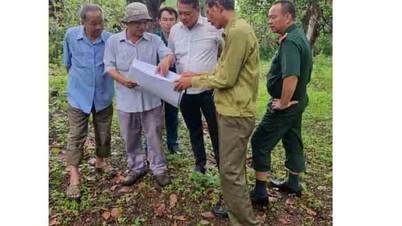
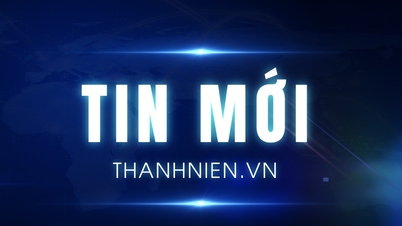




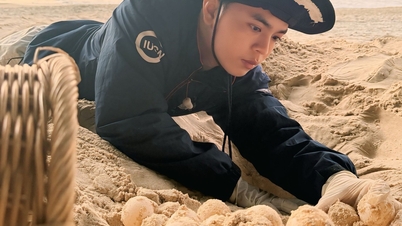
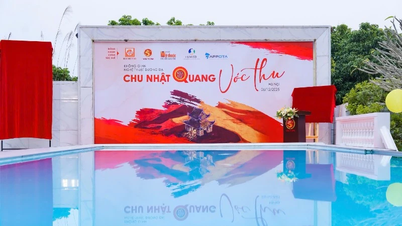

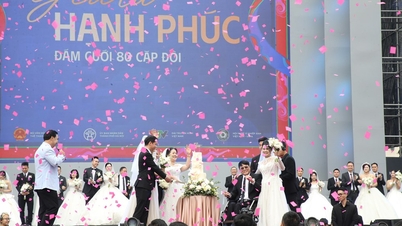

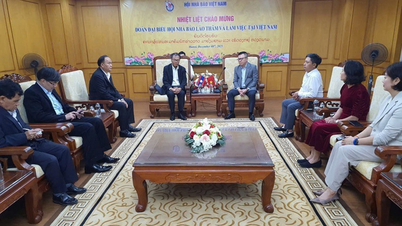

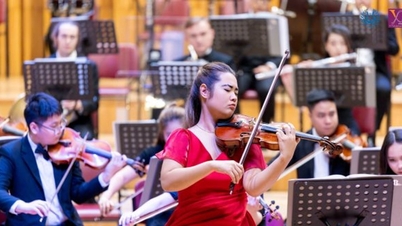

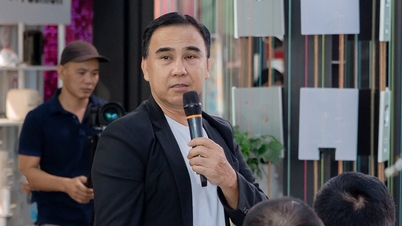
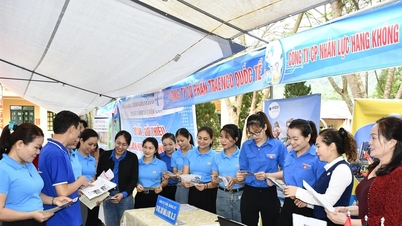







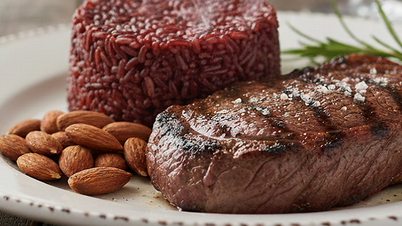
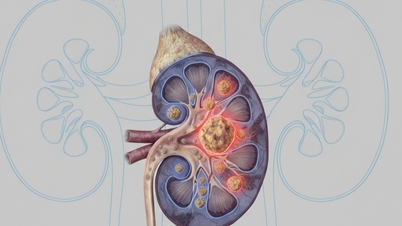
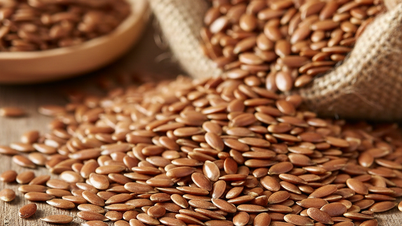
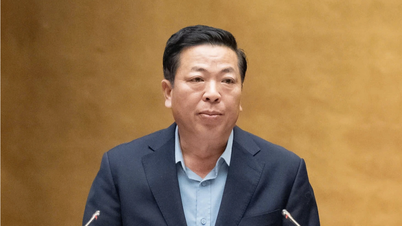





















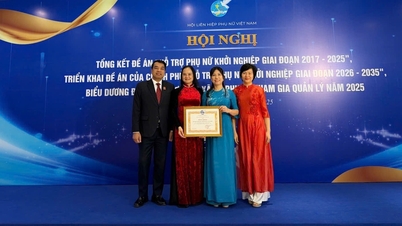














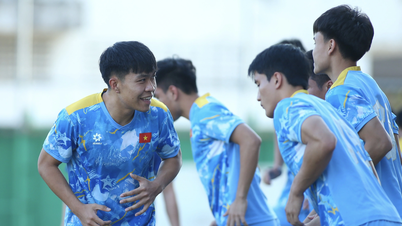
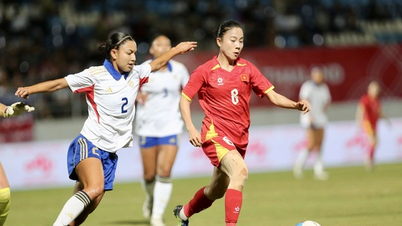
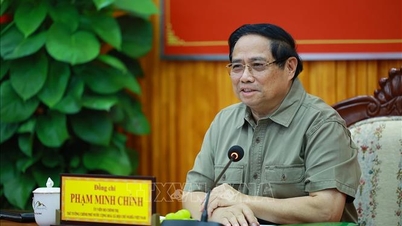

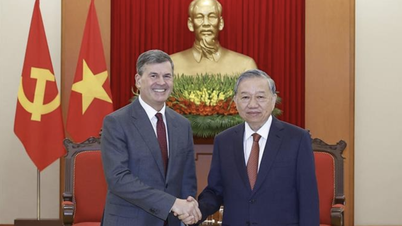


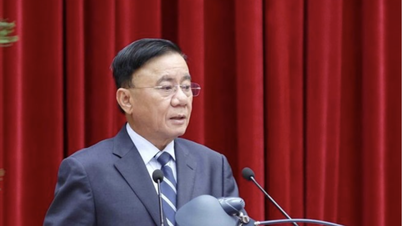


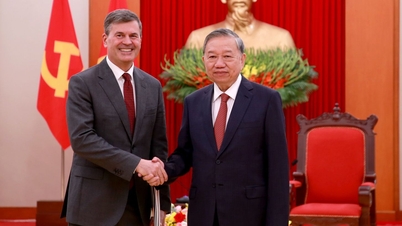








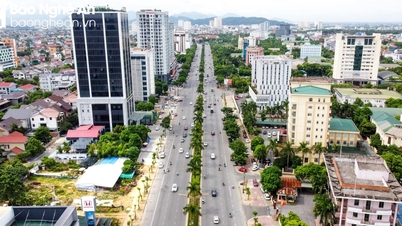
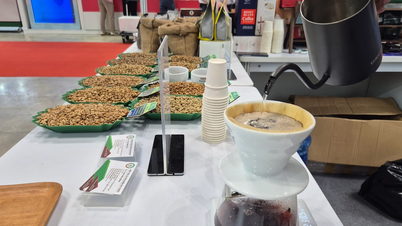
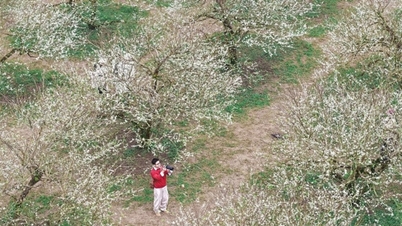
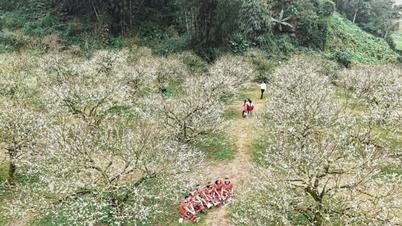
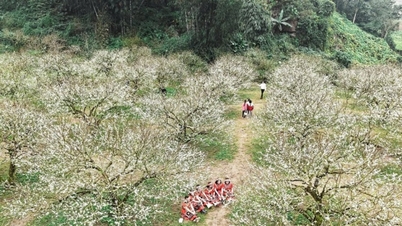

















Comment (0)